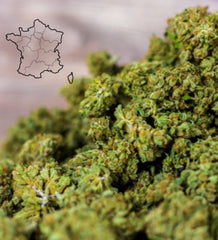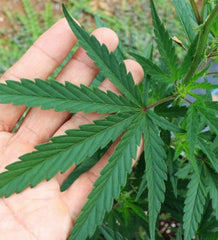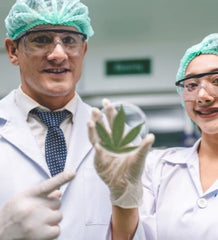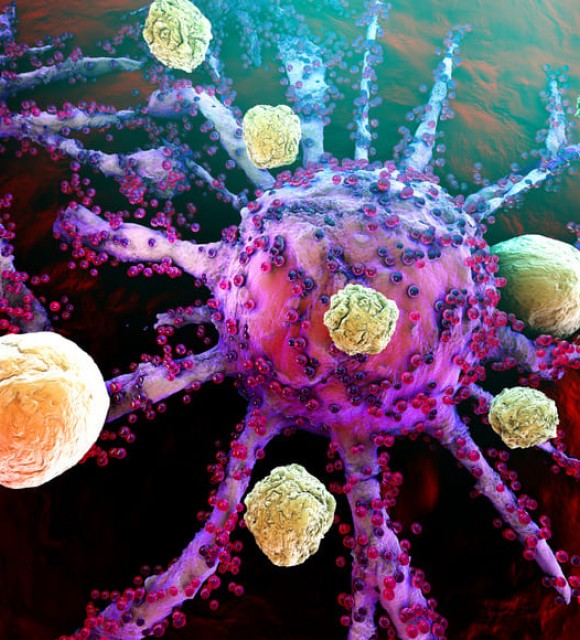
How does CBD help during chemotherapy?
What are the benefits of CBD on cancer?
First and foremost, it's important to note that cancer is one of the most difficult diseases to cure. Its treatment can cause very serious side effects for patients who suffer from it.
This is where CBD comes in. It is a substance known to the general public for its pain-relieving, antidepressant and anti-inflammatory effects.
Thus, cannabidiol can help relieve not only discomfort but also all the symptoms of cancer.
It should also be noted that it acts as an antiemetic, reducing vomiting and nausea, which are common during radiotherapy or, where appropriate, chemotherapy.
Chemotherapy: What are the side effects?
The agents used in chemotherapy are very powerful chemical compounds. While they help combat the spread and growth of cancer cells, they also interfere with the proper functioning of healthy cells.
Thus, during chemotherapy, the patient undergoing treatment may experience various side effects.
We therefore distinguish nausea and vomiting, which are the most common, from constipation or diarrhea, mouth sores and fever, fatigue, bleeding, pain, and easy bruising.
Usually, these are symptoms that do not last long and, in the best cases, are treated quite easily.
However, in some cases, chemotherapy may cause damage over much longer periods of time, which may only become noticeable after months or only after treatment has been completed.
Late side effects discussed here include heart and kidney problems, infertility, an increased risk of developing cancer in the near future, and tissue damage to nerve tissue, particularly the lungs.
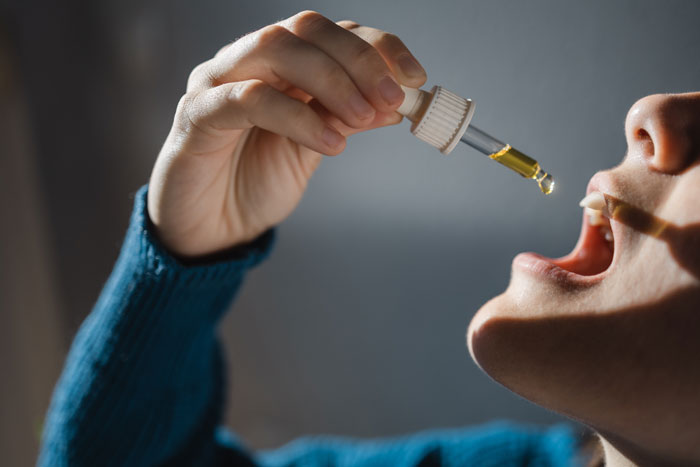
How does cannabis interact with chemotherapy?
One thing is certain: the full benefits of cannabis have yet to be fully explored. Researchers have yet to fully understand how it can help the human body.
However, they continue to deepen their research with the aim of knowing if CBD can be used to treat cancer or as an accompaniment during chemotherapy.
Anecdotal evidence suggests that cancer patients living in areas where cannabis is legal to buy and sell use it either as a complement to or as an alternative to conventional therapies available.
The cannabis plant is made up of plant cannabinoids. These cannabinoids even share some structural similarities with those produced by the human body. As a result, there may be an interaction between them and the human endocannabinoid system (ECS).
Cannabis compounds are therefore able to influence many bodily processes that the ECS is normally responsible for regulating: mood, appetite, pain, stress, anxiety, sleep, etc. Also, they can potentially have beneficial effects on patients undergoing chemotherapy.
Nausea and vomiting
During research, several cancer patients undergoing chemotherapy reported using cannabis or cannabis derivatives to treat loss of appetite, vomiting, and nausea.
Additionally, cannabis has been legalized in many parts of the world to allow these people access to treat their conditions. This includes Germany, Alaska, Argentina, California, and many others.
To better understand the effects of cannabis on nausea and vomiting, several studies have been conducted. For example, in 2001, an article on the use of cannabis to treat these symptoms was published in the British Medical Journal.
During chemotherapy, many patients also reported suffering from a lack of appetite. However, patients with access to cannabis reported regaining their appetite after using it.
It's not difficult to understand how this is possible. Having a ravenous appetite after ingesting or smoking cannabis is very common. A 2019 article published in the Journal of Psychopharmacology explored the topic.
The pain
Pain is also one of the side effects of chemotherapy. It can really impact the subject's daily routine and even their mental health.
Several testimonies have also shown that cannabis can significantly reduce this pain. Several scientific bodies have also studied the subject.
What are the disadvantages of CBD during chemotherapy?
The safety of the medications we ingest is very important, and fortunately, research has discovered that the safety profile of cannabis makes it suitable for both medical and recreational use.
It should be noted, however, that both cannabis and chemotherapy can have side effects. But compared to those of the latter, they are practically insignificant.
According to the WHO (World Health Organization), CBD consumption offers enormous therapeutic potential. Most importantly, it doesn't involve any potentially harmful side effects or any form of addiction. Therefore, there are no risks associated with consuming CBD, as it is a 100% natural and harmless compound.
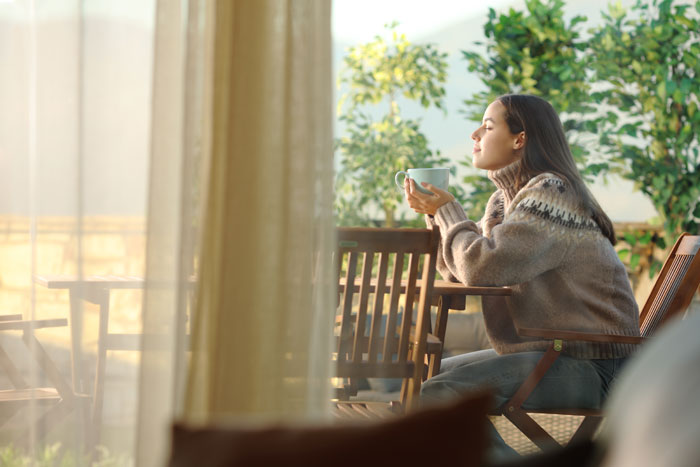
What form of CBD should be consumed during chemotherapy?
First and foremost, the first thing to do is seek advice from your doctor. If your health allows it, you can then choose between different forms of CBD, namely, flowers, resins, oils, or infusions.
CBD flowers and resins
CBD flowers and resins are products that can be consumed by inhalation, infusion, or cooking . To smoke them, we recommend using a quality vaporizer to avoid tobacco and combustion. This method allows for very rapid relaxing effects.
To make a CBD infusion, simply crumble the flowers and resins and prepare them like a traditional herbal tea. Don't forget to add a fat such as honey or milk to release the cannabinoids.
The same goes for cooking: you can incorporate flowers and resins into all your sweet or savory recipes. Note that ingestion means the relaxing effects take longer to manifest (between 30 minutes and 1 hour), but they last longer than inhalation.
CBD infusions
If you don't feel like making an herbal tea from flowers or resin, we offer ready-to-use CBD infusions. For added convenience, you can even choose tea bags. This is an excellent way to combine comfort and relaxation.
CBD oils
CBD oils are very easy to use and accessible to everyone. Unlike flowers and resins, they require no preparation.
You can consume the oil sublingually, that is, by placing a few drops under the tongue. You can also add a few drops to your drinks and meals.
The most important thing is to choose the consumption method that best suits your needs and sensibilities. Ready to focus on your well-being and serenity?



